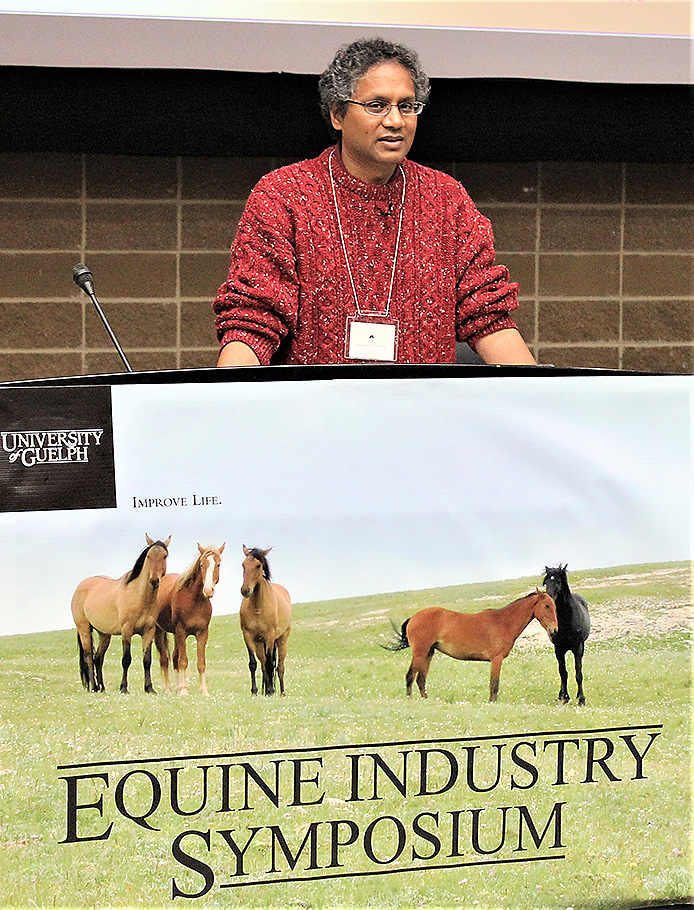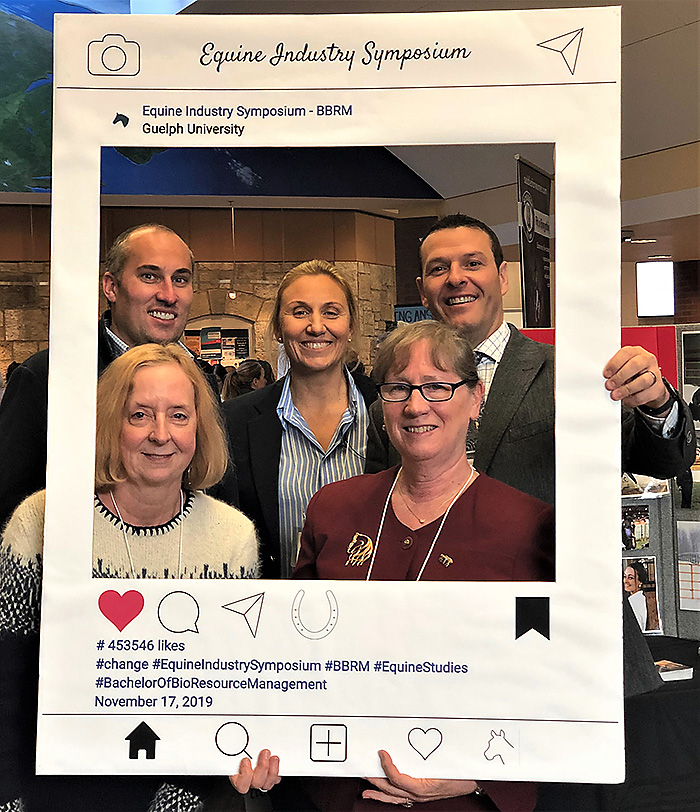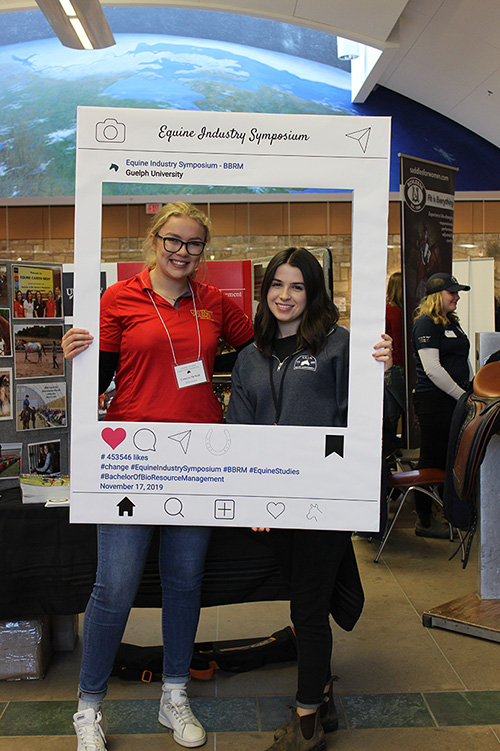
The Equine Industry Symposium was organized and hosted by 2nd year students in the Bachelor of Bio-Resource Management degree majoring in Equine Management.
Opening remarks at the 4th annual Equine Industry Symposium held on November 17 on the University of Guelph campus were presented by this year’s facilitator Akaash Maharaj, who challenged the audience by asking if we are masters of change or slaves to change. If we want to become masters of change we must create incentives. We must lead by example, show those in the horse industry and those at a large what change we want to see and how we want that change to happen. Reward those who follow and create consequences for those who choose not to follow.
 The theme of change was embodied by the three international speakers. The first speaker, zooarchaeologist Dr. Sandra Olsen, captivated the audience with her knowledge and research of horses during ancient times. As horses traveled to different locations through trade, importation, tributes, marriage, gifts and war booty, care and management practices traveled and evolved with them. However certain management practices have not changed since ancient times, such as the stabling of horses.
The theme of change was embodied by the three international speakers. The first speaker, zooarchaeologist Dr. Sandra Olsen, captivated the audience with her knowledge and research of horses during ancient times. As horses traveled to different locations through trade, importation, tributes, marriage, gifts and war booty, care and management practices traveled and evolved with them. However certain management practices have not changed since ancient times, such as the stabling of horses.
 The second speaker, Debbie Busby, spoke to the audience about “Human Behaviour Change for Animals”. Busby stated that human behaviour is the root cause for most animal suffering, and detailed the four pillars of change: the stages of behaviour change, the psychology of change, the environment of change and the ownership of change. Busby gave examples of behaviour change with positive outcomes for horses based on her own equine behaviour consultancy in the United Kingdom.
The second speaker, Debbie Busby, spoke to the audience about “Human Behaviour Change for Animals”. Busby stated that human behaviour is the root cause for most animal suffering, and detailed the four pillars of change: the stages of behaviour change, the psychology of change, the environment of change and the ownership of change. Busby gave examples of behaviour change with positive outcomes for horses based on her own equine behaviour consultancy in the United Kingdom.
The third speaker, Lisa Ashton, entreated all horse lovers to be the change that horses need. We are the ones who need to make a difference, and evidence-based research on best practices can help us know better and do better. Ashton also spoke about the different stages of change, and what we can do to help make change happen.

The entrepreneurial panel presented five professionals from various areas of the equine industry as “Agents of Change.” Warren Byrne representing Canna Horse, Linda Hauck representing Tapestry Equine Products, Anthony MacDonald, representing TheStable.ca, Gayle Ecker representing Equine Guelph, and Lisa Ashton representing EquiSci each spoke about the change we need to make for horses and how they are creating change in the industry. All their different areas of expertise stimulated a very engaging discussion with the audience.
The Equine Industry Symposium was organized and hosted by 2nd year students in the Bachelor of Bio-Resource Management degree majoring in Equine Management. They wish to thank all the sponsors that made the day possible including the lunch sponsor Ontario Racing, the breaks sponsor the Horsemen’s Benevolent and Protective Association, the Ontario Agricultural College and the departments of Animal

Biosciences and Food, Agriculture and Resource Economics, the Grand River Agricultural Society, System Equine, Schleese Saddlery. Raffle prizes were donated by Greenhawk, Saddlefit4Life, Jennifer Bailey, Stride Snacks and Lea-Louise Gadsby. The networking game played during lunch featured the Working on Optimal Equine Welfare (WOW) playing cards depicting the first principles of training, and the winners received a full-sized poster of the first principles.
To keep up to date with information about next year’s symposium and photos from this year’s symposium find us on Facebook @Equine Industry Symposium. For further information please email EQevents@uoguelph.ca.
Photos:
Top: Akaash Maharaj, facilitator for the 4th annual Equine Industry Symposium
Top Right: From left to right: Lisa Ashton, Gayle Ecker, Anthony MacDonald, Linda Hauck, Warren Byrne
Middle: Speakers (front row) Dr Sandra Olsen, Gayle Ecker, (back row) Warren Byrne, Lisa Ashton and Anthony MacDonald having fun at the Equine Industry Symposium Agents of Change.
Bottom: Equine Management students Camryn MacNeil and Renée D'Angelo


